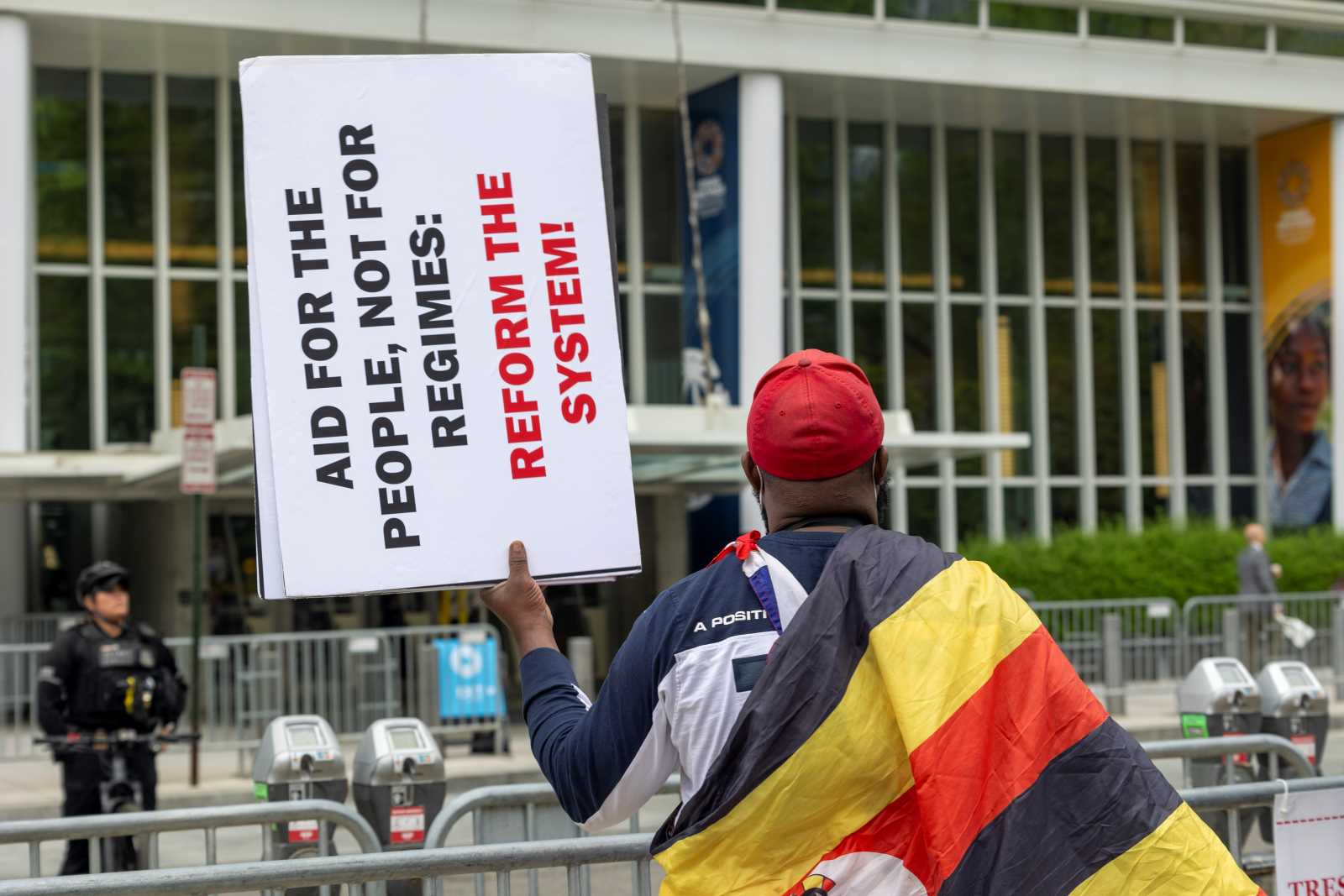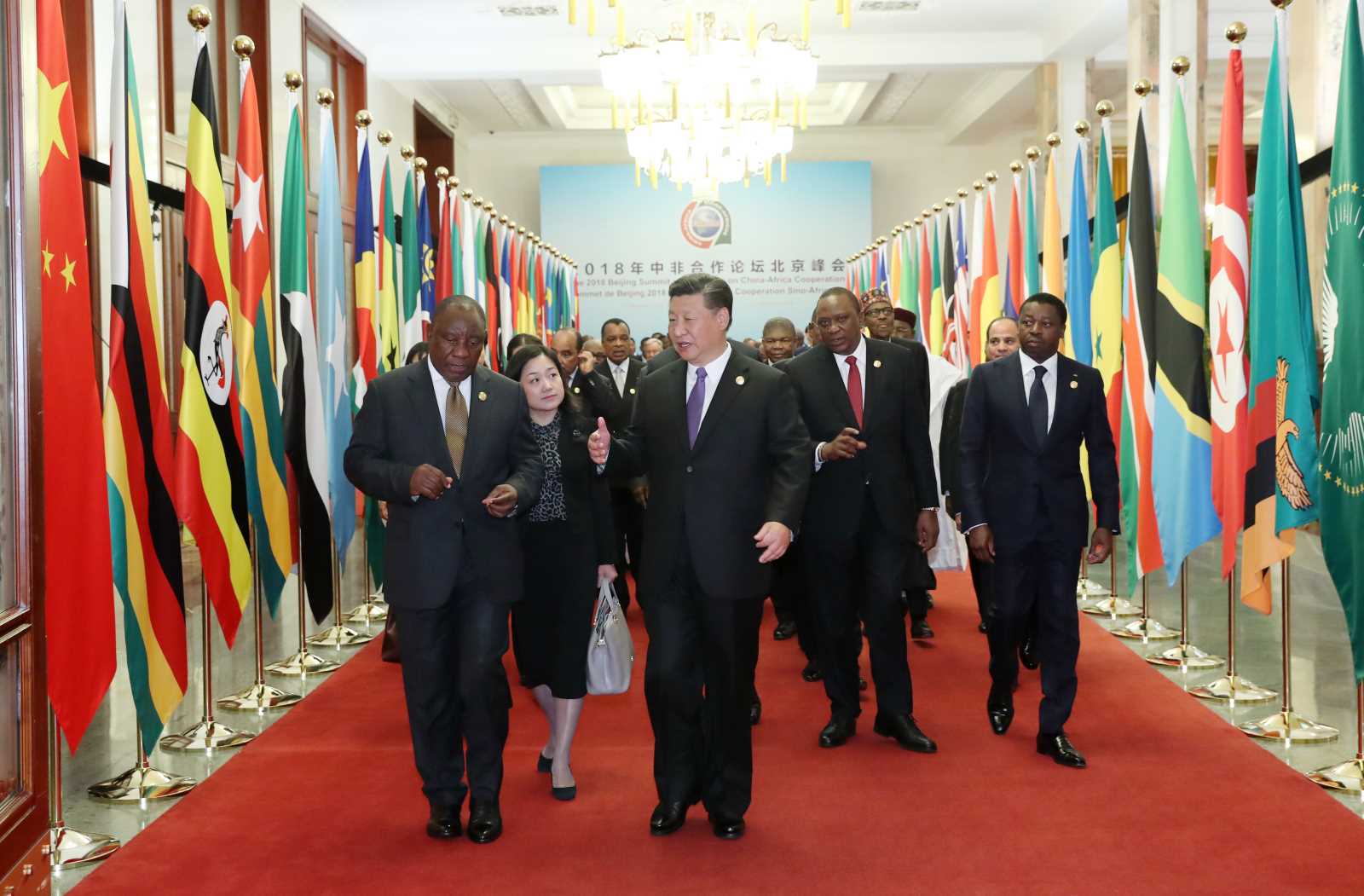Civil society
Cooperation, not instrumentalisation

Development policymakers recognised the relevance of civil society years ago and are designing programmes accordingly. In Mozambique, for example, international donors have been funding local civil-society organisations (CSOs) since 2008 (see box, p. 257).
The High Level Forum on Aid Effectiveness in Busan at the end of 2011 mentioned the "inclusion of new actors" in the development agenda – a reference largely to CSOs. Since then, Germany’s Federal Ministry for Economic Cooperation and Development (BMZ) and its agencies GIZ and KfW have been reconsidering cooperation with non-governmental organisations, based on their previous experience with independent organisations. Debate with German non- governmental organisations (NGOs) on the issue is controversial, not least because these NGOs fear they might be sidelined.
Cooperation with CSOs entails a number of problems that are currently underestimated. To understand the issues, one first needs to define civil society. We understand civil society as the sphere between state, business and family in which the citizens of a country can freely associate. Within this sphere, they discuss issues and problems that they cannot tackle personally, and which do not necessarily need to be resolved by the state. Often, resolution by the state would mean a restriction of personal and collective freedom. Civil society is also the space in which citizens freely team up to demand, defend and assert their interests and rights against the state and against business. However, this kind of idealised civil society is operational only where there is an "open society". An open society is a collective of free individuals living under the protection of the state and respecting each other’s rights. Decisions are taken responsibly and rationally, making life more dignified and richer for all.
Closed societies do not meet these criteria or only meet them up to a point. In such settings, civil society will normally develop only in the face of resistance (see Borowczak/Kaufmann D+C/E+Z 2011/02, p. 69 ff.). Indeed, civil-society organisations often encounter oppression from the state. Conflict with those who run a country is next to inevitable. Europe and North America have open societies today, but they only evolved in long histories of conflict.
Weak civil societies
The legal regulations for civil-society organisations in developing countries tend to be precarious or even obstructive. Furthermore many CSOs only have few members and only insignificant revenues, mostly from donations. Financial assistance from the state is rare. CSO staff tends to be poorly qualified and facilities poorly equipped. Moreover, CSOs in many countries often do not network sufficiently. Stable alliances are few and far between.
An even greater problem, however, is that the actions of CSO leaders are often less than transparent. Cases of corruption and opportunism in dealings with donors and government agencies are common.
When donor-country agencies support civil-society organisations, the following issues arise:
- The government of the developing country concerned may view the engagement as an interference in its internal affairs. This is particularly so when donors support CSOs that criticise the government, for example in closed societies such as Zimbabwe or Myanmar.
- Because civil-society actors in developing countries are so desperately short of resources, the relationship between donors and recipients is assymetric. Accordingly, support for civil-society organisations tends to be supply-driven, violating the fundamental principle of demand-driven assistance.
- The evolution of civil society is a long-term, complex and often conflict-prone process. It needs to be asked whether donors are willing and able to accompany such a process, whether they will come up with adequate funding, and whether it really is their job to do so.
- Donors are at risk of adopting an overbearing attitude, along the lines of "we have identified a problem in your country and are offering you the money to eliminate it." Such an approach, however, neither fits a cooperative relationship, nor is it very helpful. Outside assistance will only be successful when a country’s citizens themselves identify a particular problem and want to tackle it.
In view of the above-listed caveats, support should be given only to civil-society organisations that commit to the following principles in regard to both, their country’s public affairs and their own organisation:
- good and transparent governance, based on the accountability of leaders,
- democratic participation,
- civil-society engagement and self-organisation in the sense of public advocacy,
- a market-based economy with rules that suit the country concerned and
- the rule of law.
The objective must be to promote not only the economic development of a country, but equally consider its social, cultural and democratic development to the benefit of its citizens.
Donors must not gear their support to development-oriented organisations in a narrow sense. Civil-society organisations that fight for human rights, insist on transparency of state action and demand the integrity of officialdom, equally deserve attention. Well-established organisations such as business associations, trade unions and farmers’ associations should be considered. German NGOs can be involved in programmes, but only if they add value to a partnership.
If support is provided on this basis, it should help to tap a country’s development potential more effectively, promote democracy and correct undesirable trends. While support for civil-society organisations is commendable, it must be conceived as a new, additional instrument of German development policy. It deserves a separate budget.
Moreover, civil-society organisations in partner countries must be recognised as independent actors. It does not make sense to try to control their often unconventional initiatives and unusual forms of organisation from outside. It is also improper to reduce them to the role of "watchdogs" that denounce shortcomings of the government and state agencies. Civil-society organisations, moreover, cannot substitute parliaments, audit courts or other public institutions of control.
It deserves emphasis that civil-society organisations are not per se "good". In theory, they could include criminal juvenile gangs like the Maras in Central America or the mafia-like Pagad in South Africa. In developing countries in particular, civil-society organisations tend to be weak and often operate in difficult legal and political conditions. Accordingly, their reach and influence are limited. It is important to be realistic about what they can achieve in the development process.
Friedrich Kaufmann is an economist who has spent ten years in Mozambique. As a free-lance consultant, he specialises in Spanish and Portuguese speaking countries.
friedrich.kaufmann@gmx.net
Winfried Borowczak is a free-lance consultant who focuses on private-sector development and organisational issues in Africa and Portuguese speaking countries.
winborow@aol.com













